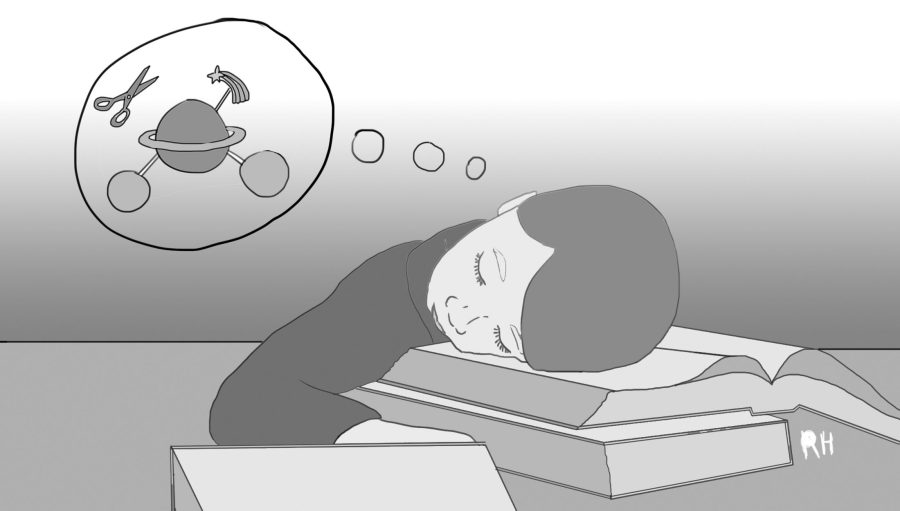We’ve all been there. It’s the day of a test and regardless of whether or not you’ve studied for it, you still feel nervous. As the teacher begins to hand out the exam, your heart jumps a bit as some of the questions look foreign.
As every high school student knows, tests and quizzes are a part of everyday life and usually count for a good chunk of one’s overall grade. However, this sometimes results in a lot of weight put on just a few of assessments.
With the heavy weight most tests carry, this creates hardship for students who habitually don’t perform well on tests, not because they didn’t study, but because this one-size-fits-all system does not work for everyone.
Paly has made strides in advancing the education environment and making it a good fit for everyone through initiatives on improving mental health and implementing a better bell schedule. However, few changes have been made District-wide to better measure the conceptual understanding of topics without relying on unit tests.
The problem with relying mostly on tests as a way to measure learning is for students who get test anxiety or are overly stressed about a test, to the point where they freeze up and blank on a section they just covered a few days prior.
According to the American Test Anxieties Association, around 20 percent of students experience high levels of anxiety. Students who were anxious during a test scored an average of 12 points less than students who weren’t anxious. For these students, this could mean the difference between an A and a B.
The solution to this problem is not an easy one. Paly must find the right balance between tests and projects and cannot simply eliminate tests altogether, because some tests are needed to measure progress in ways a project cannot.
However, one possibility is having more project options for different units or having some test retakes in the form of a project or lab.
This could work by replacing tests with projects that have the same level of rigor and time commitment, but also allowing students to reflect their knowledge in a form other than a typical test. The projects would vary depending on the subject, and teachers within each department could collaborate to create projects that best fit each course.
For example, the science department could have more hands-on experiments that use a variety of the skills taught in that unit in order to still cover the same material from the exam, but just present it in a different way. For instance, a student studying light in chemistry could be assigned an experiment involving a specific light source in the room and use various tools to calculate its frequency or wavelength.
Although replacing tests with projects every once in a while would not be a guaranteed solution to the problem of test anxiety or test taking in general, it would provide an alternative to the standard path and open up the possibility for more success for different types of learners.
“I think project-based learning is wonderful. I think it’s very important to incorporate it as much as possible in every lesson,” said Paly Spanish teacher Cristina Gonzalez. “It’s really important for people to do hands-on work that seems meaningful versus just sitting down and just receiving information doing some worksheets or some other kind of work that they can do a project that incorporates whatever it is that there learning in class.”
Including more variety in the way teachers measure success in the classroom could lead to a more effective environment that would benefit both students and teachers.
According to a University of Iowa study, students who were confident about their academic abilities did better than students who weren’t by up to 12 percent.
Knowing there is potential for success regardless of their test-taking abilities, students will ultimately have a more positive view of potentially their whole school experience.

